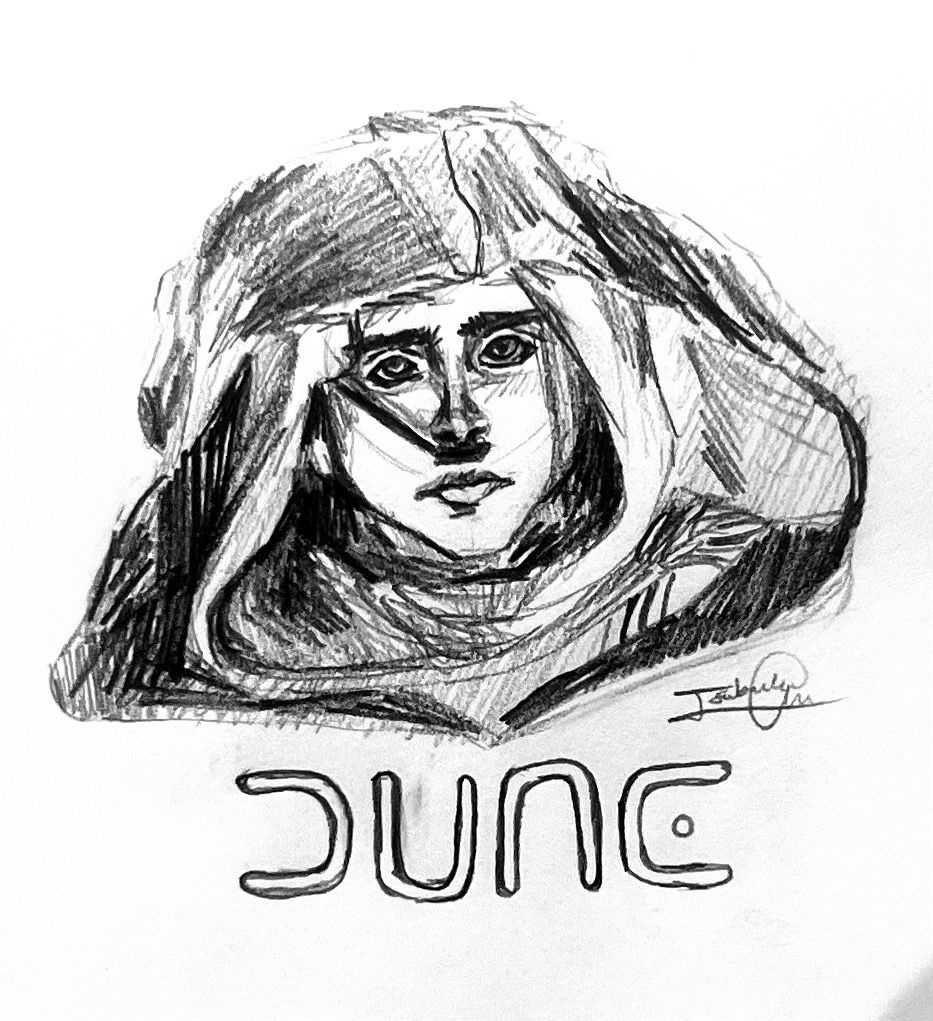From Spice to Lore: Why 'Dune: Part Two' Is Captivating Audiences
- Chariot Paper
- Apr 16, 2024
- 3 min read
By Linda Cheung and Varun Pillai
In what seems to be a barren desert of underwhelming Hollywood blockbusters, “Dune: Part Two” has proven to be an oasis in the eyes of many. With Dune’s $660 million sales globally, some question what elements of Dune’s storytelling make the series intriguing to many.
Both "Dune" films observe Paul Atreides, the protagonist and heir to the duke of the House of Atreides. Paul is the son of Jessica Atreides, a member of the Bene Gesserit—a powerful social, religious, and political order exclusively governed by women—whose aim is to prepare for the coming of “The One"—a messiah that will save the universe from eternal damnation. Later in the plot of "Dune Part 1," Paul meets Chani, a member of the Fremen, a group of people inhabiting the desert planet Arrakis. The Fremen’s habitation on the planet Arrakis gave them blue eyes, which are the result of the planet’s abundance of spice. Spice is a highly coveted natural resource that several houses fight to gain control of. Toward the conclusion of "Dune Part 1," Paul experiences a fall from grace resulting from House Harkkonnen’s attack on the House of Atreides on the planet Arrakis. Earlier in the second Dune movie, Paul is gradually accepted into the fold of the Fremen and eventually seen as one of their own. Paul and Chani develop a close romantic relationship, which is pivotal to the plot of the movie later.
“I think the Dune movie had a deeper character depth for Paul Atreides and how he is the chosen one,” senior Ian Alana said. “He goes through an adventure to become the greatest potential he could be and make a new world where war could end. The most interesting part, I would say, were the many fight scenes they had throughout this movie, which is cool to see how conflict is a big struggle for everyone and everyone fights to survive.”

Source by Izzy Chu
In what seems to be a barren desert of underwhelming Hollywood blockbusters, “Dune: Part Two” has proven to be an oasis in the eyes of many.
However, Chani is one of the few who reject the Bene Gesserit’s religious assertion that there will be the coming of a messiah, a divine being they call “The One.” Multiple times throughout the movie, Chani claims that the “Lisan Al-Gaib” (“The One”) is a false idol that the Bene Gesserit created as a deliberate strategy to help oppress and enslave the Fremen.
Chani’s claim throughout the movie is a reflection of the movie’s socio-political commentary, specifically with “Lisan Al-Gaib” being a religious allegory for the corruption of Abrahamic religions. The movie’s commentary is also made clear by Paul’s visions, which depict a holy war with millions of people dying in his name. Furthermore, Paul and Chani’s relationship becomes more relevant later in the movie, after Paul drinks the Water of Life, where his visions become clearer and he realizes he has progressed too far to turn back from an inevitable holy war. The end of Paul and Chani’s relationship is made clear during Paul’s fight with Feyd-Rautha Harkkonen, and Chani fully realizes that Paul is not the same person he was compared to at the start of their relationship. While Chani enters her romantic relationship with Paul, seeing him as a trustworthy person who is her equal, Paul’s grandiose ideas of his religious leadership status weaken their relationship and serve as a testament to the dangers of idolizing an ordinary figure.
Stilgar’s fervent belief in the “Lisan Al-Gaib” serves as a stark contrast to Chani and also highlights how the Bene Gesserit and the houses have used religion as a divisive force, specifically exploiting religious tension for political gain. While Stilgar and Chani both believe in the need to free the Fremen from the oppression they face, they have different ideas of achieving this goal. Stilgar believes that the “Lisan Al-Gaib” will come and save the Fremen from their oppression, bringing them to an eternal paradise, while Chani believes that the Fremen are the only ones that can save themselves from their oppression, and no one will do it for them. Stilgar and Chani’s differences in religious belief are also representative of the regions in which they originate. While Chani’s specific beliefs are not reflective of every woman from the North, her worldview as a whole is more representative of the people from that region. However, Stilgar’s fundamentalist beliefs and values are representative of the Fremen in the south because the inhospitable conditions in that region require a strong sense of faith and hope to survive. Any action that Paul Atreides takes is interpreted by Stilgar as a sign that he is the “Lisan Al-Gaib.”

Comments